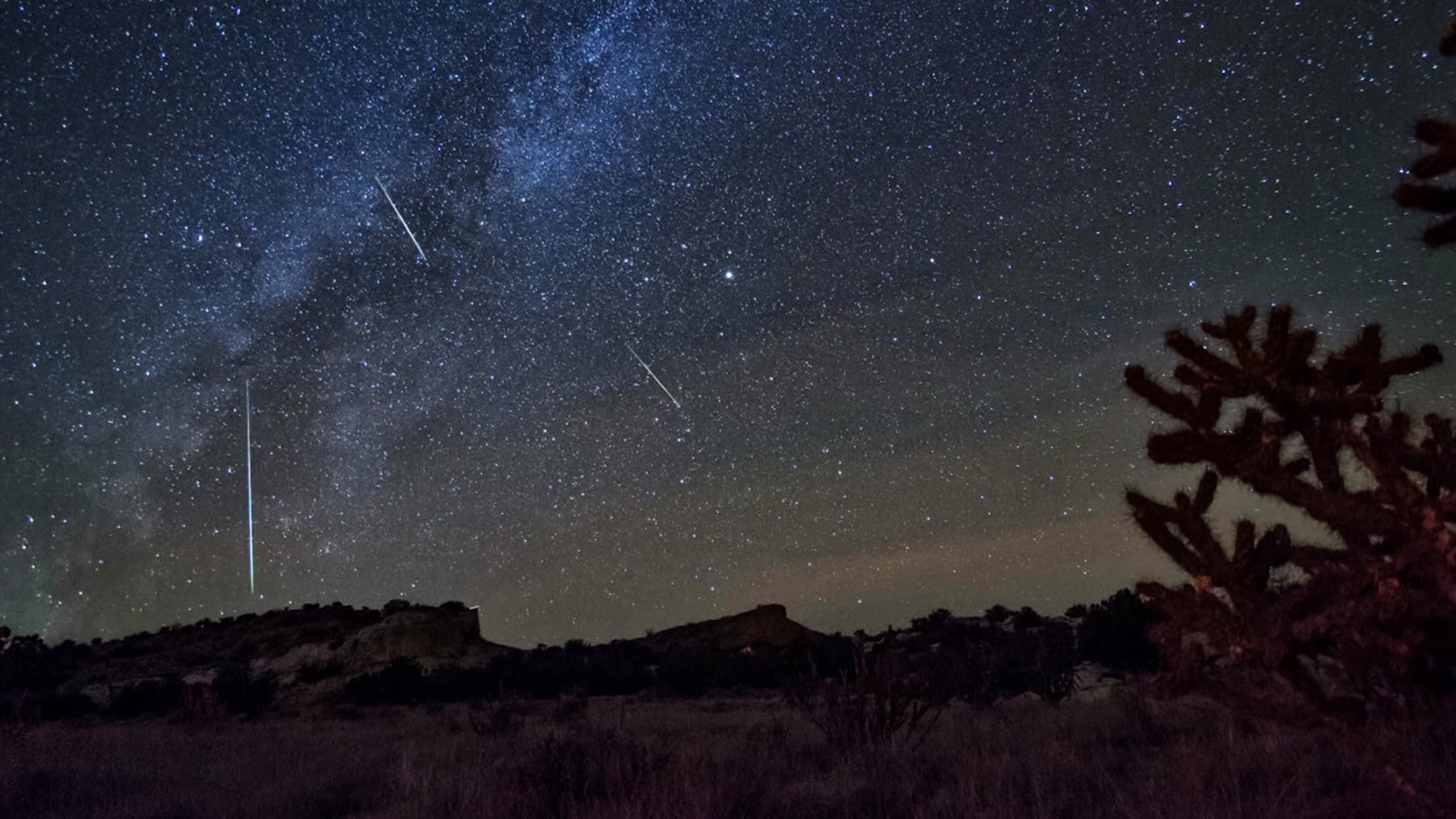The Lyrid meteor shower peaks this week.
To learn more about meteor showers, Newswatch 16's John Hickey had an online chat with Matt Beaky. He's a physics professor at Juniata College in Huntingdon, Pennsylvania.
"A meteor shower happens when the Earth passes through a cloud of leftover dust and debris from a comet that has orbited the sun," Beaky said.
Specifically the Lyrid meteor shower.
"This one always happens in April because this is the time of year that the Earth is passing through the comet trail left behind by a comet named Thatcher that passed through our solar system well over 100 years ago," Beaky said.
What makes the Lyrid meteor shower the Lyrid meteor shower?
"The Earth at this time of year is heading in the direction of the constellation Lyra, which is a small constellation that's shaped like a heart or a lyre," Beaky said. "So, we're heading in that direction, so the meteors seem to emanate from that point in the sky. We call it the radiant."
The Lyrids aren't the most prolific meteor shower.
He said, "It averages about 20 per hour under the best circumstances."
But, "Historically, it has surprised some years, and there has been a much higher rate than average," he added.
The Lyrids peak late Wednesday night into early Thursday morning, but Beaky says that a nearly full moon will be up in the sky much of the night.
"Unfortunately, that's a drawback as far as observing the Lyrids this year," he explained.
Despite that, there's a window of time where your chances of seeing a few meteors are highest.
"Between about 4 a.m. and sunrise, there will be no moon, and that would be the best time to observe the meteor shower," Beaky said.
But don't get discouraged if it takes you a while to see one.
"Meteors occur randomly," Beaky said. "We can say one might occur every five or ten minutes or so, but there might be two in a row or none for a long time."
To maximize your chances of spotting the Lyrids, Beaky says it's important to get an unobstructed view of the sky away from light pollution.
"Make yourself comfortable, stay warm, watch the sky for a while, and with any luck, you'll be able to see a meteor or two or three," he added.
Of course, we'll hope the sky is cloud-free enough to see them too.

